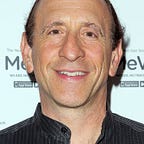Mark Zuckerberg Just Doesn’t Get It
Mark Zuckerberg recently announced his personal challenge for 2019 is to make Facebook “work in your best interest.”
Excuse me if I’m not convinced of his sudden altruism. It is an absurd proposition that Mr. Zuckerberg could and would work in anyone’s interests other than his own and the advertisers who fund his company.
His latest announcement smacks of familiarity. For 15 years Mr. Zuckerberg has been an expert at dispensing misleading sound bites about Facebook’s higher purpose while days later apologizing for countless year-after-year and week-after-week infractions against billions of Facebook members and humanity.
The fundamental premise of Facebook runs counter to any supposed altruism. It is a data company, not a social network. Facebook uses the false premise of social networking as a masquerade, and as its spokesperson, Mr. Zuckerberg perpetuates the smokescreen.
For another recent example of Mr. Zuckerberg’s smoke-and-mirrors act, just take a look at the self-congratulatory and wildly misleading op-ed he recently published in the Wall Street Journal.
Mr. Zuckerberg’s op-ed sought to accomplish two lofty goals: paper over the mile-high heap of scandals enveloping his company, and convince you that Facebook isn’t so bad after all.
A quick perusal of the blistering comment section on his op-ed will tell you just how distrusted and out of touch the Facebook CEO has become — it would appear that Mr. Zuckerberg’s rose-colored glasses are on a tad too tight.
Timed to Facebook’s 15th anniversary, Mr. Zuckerberg’s lengthy extolment of his company’s virtues happened to overlook some its most colossal scandals from the past couple years (Russian meddling, massive data breaches, and nasty smear campaigns of its critics to name a few). Instead, Mr. Zuckerberg aimed to celebrate Facebook’s anniversary by painting his company as a harmless, innocent platform that has just been woefully misunderstood — the Boo Radley of Internet giants.
Of course, this is all nonsense. Mr. Zuckerberg’s piece is so full of misleading information, it could easily be mistaken for the kind of #FakeNews his website helped make famous. Here are a few select pants-on-fire miscues that leap off the page:
In the op-ed’s subheading, Mr. Zuckerberg claims, “We need your information for operation and security…”
Well, that didn’t take long! Right from the get-go, Mr. Zuckerberg paints an altruistic smokescreen about why Facebook “needs” to collect your personal information — in reality your “security” has nothing to do with it. The real reason Facebook “needs” your information is so they can harvest, aggregate, analyze, bundle and then sell access to you based on it to the highest bidder who desires to target you.
Mr. Zuckerberg continues, “People consistently tell us that if they’re going to see ads, they want them to be relevant. That means we need to understand their interests.”
While Mr. Zuckerberg feigns that he’s doing his users a favor by force-feeding them hyper-targeted ads, the truth is that in Facebook’s business model, the users are the products, and the only ones Facebook curries favors to from its data-laden coffers are the marketers, advertisers, and purveyors of fake news manipulations that knock on its door.
Attempting to explain away the concerns of Facebook’s critics, Mr. Zuckerberg adds that “this model can feel opaque, and we’re all distrustful of systems we don’t understand.”
Yes, Mr. Zuckerberg believes that the only reason anyone is critical of his company is because they’re just too ignorant to understand it. In fact, Facebook’s business model is intentionally opaque. They don’t want their users to know how the sausage is made, and they’ve been remarkably successful at concealing it.
The reality is just the opposite of what Mr. Zuckerberg claims: the more people understand about Facebook and its business model, the less they trust the company.
Mr. Zuckerberg continues, “There’s no question that we collect some information for ads — but that information is generally important for security and operating our services as well.”
Just “some” information? If there were an Olympics for understatements, this one surely takes the gold. Facebook doesn’t just collect “some” information — it collects all information. There is hardly a thing about you that Facebook doesn’t know. Facebook even collects data from non-users. Truly, no one is safe from the every-hungry data-vacuum known as Facebook.
Mere days after Mr. Zuckerberg’s op-ed was published, it was revealed that Facebook broke Apple’s privacy policies by using an app to spy on users as young as thirteen, which got its app banned from the Apple Store.
As ever, Mr. Zuckerberg and his team tried to whitewash the whole thing and explain that its many critics are simply too ignorant to understand it. Because Facebook is so desperately addicted to user data, it makes sense that they can justify taking such an absurd position.
Fortunately, the tides are turning. Facebook’s favorability is at an all-time low as more and more people are getting wise to Facebook’s underhanded practices and are moving to privacy-friendly alternatives like MeWe.
Perhaps Mr. Zuckerberg and his team at Facebook can take credit for something good after all: they’ve made the public more aware than ever about the importance of their online privacy and security.
Mark Weinstein is a leading privacy advocate and the CEO of MeWe, the award-winning social network with a Privacy Bill of Rights and the №1 Trending Social Site.
📝 Read this story later in Journal.
🗞 Wake up every Sunday morning to the week’s most noteworthy Tech stories, opinions, and news waiting in your inbox: Get the noteworthy newsletter >
